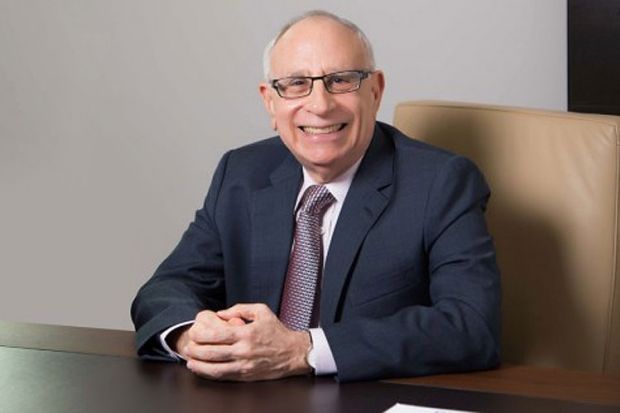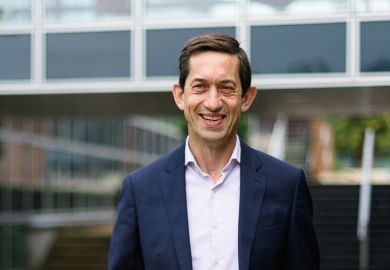Source: NYU Abu Dhabi
Is it possible to offer a truly international education experience in the Western world? Not according to Alfred Bloom.
Dr Bloom has been the vice-chancellor of New York University’s outpost in Abu Dhabi since 2009 and, in terms of his pedagogical outlook at least, can be said to have gone native.
He spent 18 years as president of Swarthmore College, a US liberal arts institution, but now argues that efforts to internationalise teaching and research at such institutions are held back by a shuttered worldview.
For Dr Bloom, the world is a “new place with actors who come from equal levels of intellectual resources and potential contribution”. Therefore the “first thing” to do, when setting up an international university, is to “move beyond the hegemony of the US and Western Europe”.
“Unless you have a context with no culture that is dominant, you don’t have a sense of being in a global world,” he said.
Building mutual understanding
At NYU Abu Dhabi, Dr Bloom believes that he has created such a place. Of its 739 undergraduates, 11 per cent are Emirati and 16 per cent are from the US, with 107 countries represented overall.
The experience of bringing these students together, Dr Bloom said, was “electrifying”. Not only do these students receive a traditional liberal arts education, they also learn to “find common ground across differences and build mutual understanding and purpose”, he continued. The same is true for research, Dr Bloom believes. Academics at an institution like NYU Abu Dhabi, he said, “can be comfortable stretching paradigms shaped in Western universities in a way which constrained the core of excellence in these paradigms”.
This is a rosy picture of life in the Middle East, but NYU’s Abu Dhabi venture has faced problems that are familiar to other institutions operating in the gulf.
Most recently, The New York Times reported that Andrew Ross, an NYU professor based in the US, had been barred from entering Abu Dhabi after criticising the exploitation of workers who built the university’s campus on Saadiyat Island. An independent report published on 16 April found thousands of workers had been excluded from NYU’s enhanced labour standards, albeit without the university’s knowledge.
Speaking to Times Higher Education before these developments emerged, Dr Bloom argued that moving to another country inevitably meant that you “accept a set of expectations from that society” and that, if you couldn’t, then “that’s not the place for you”. But he said that there was an “absolute commitment to academic freedom” in Abu Dhabi and argued that every society placed restrictions on expression, be it through law or social convention.
“In the US, you can’t start speaking in harassing terms, in racist terms, in revolutionary terms against the government in specific ways,” Dr Bloom said. “I really believe the atmosphere right now [in Abu Dhabi] is one that has somewhat different limitations and different restrictions but will not curb the opportunity for very comprehensive expression and creativity.”
This diversity, Dr Bloom added, served to reinforce the “complexity” of a globalised society, allowing academics to consider, for example, the balance between “stability and total freedom of expression”.
Register to continue
Why register?
- Registration is free and only takes a moment
- Once registered, you can read 3 articles a month
- Sign up for our newsletter
Subscribe
Or subscribe for unlimited access to:
- Unlimited access to news, views, insights & reviews
- Digital editions
- Digital access to THE’s university and college rankings analysis
Already registered or a current subscriber? Login





